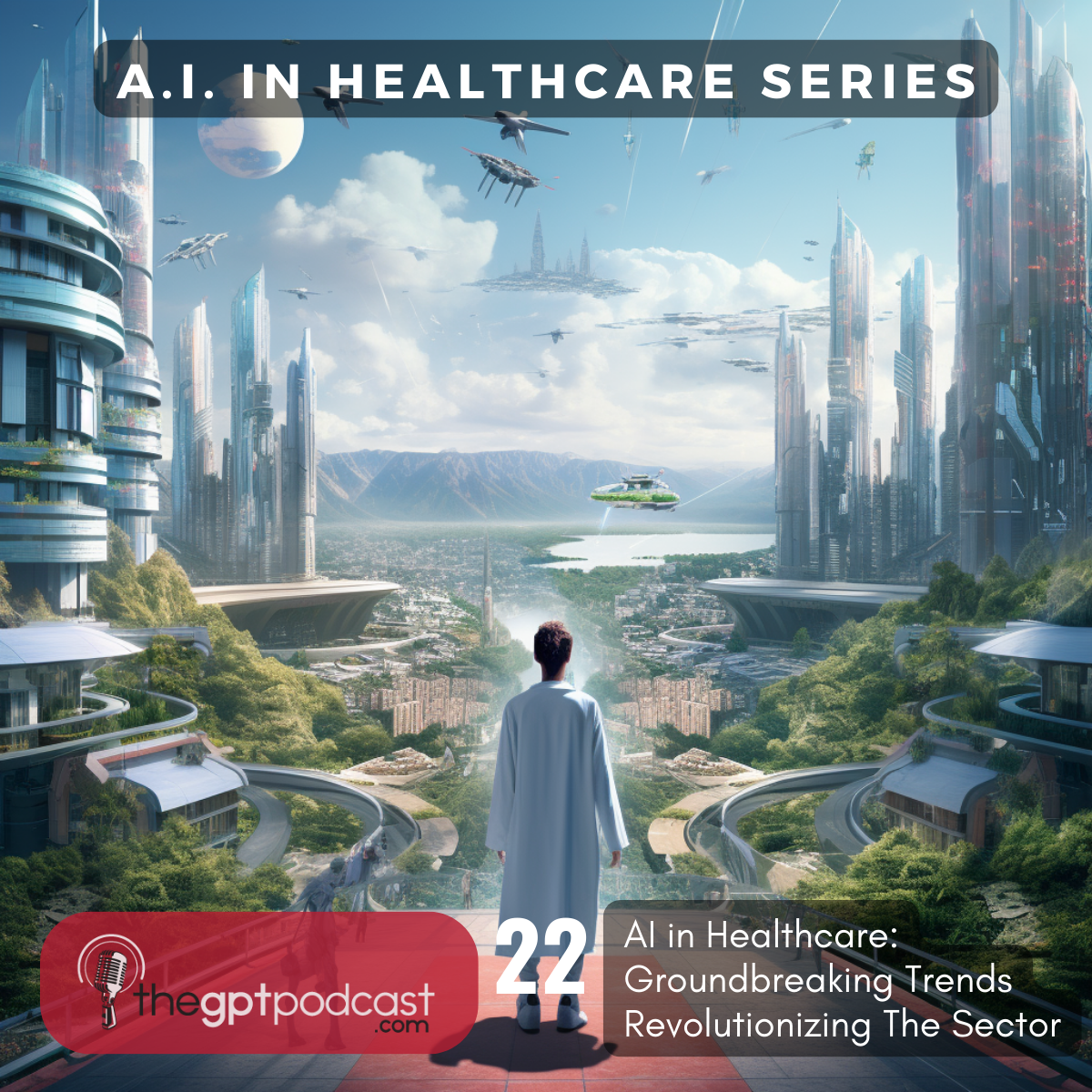AI in Healthcare: Groundbreaking Trends Revolutionizing The Sector
👨⚕️Dr. Castro and Brooks explore AI in healthcare trends on GPT Podcast🎙️. Trends include a shift towards preventive care🏥, use of AI in democratizing healthcare access😷, AI chatbots as health assistants💬, and the concept of 'Digital Twins'👥.

In our recent GPT podcast, Dr. Harvey Castro and his co-host, Brooks, explored some of the fascinating trends in the integration of AI in Healthcare that are set to revolutionize the industry.
Longevity and Preventive Care
One of the key trends is the shift towards preventive care. Our longer-living population, coupled with economic uncertainty, has placed significant stress on global healthcare systems. Preventive care aims to offset this burden through proactive rather than reactive responses.
AI-Driven Shifts
AI plays an integral role in this transformation. Generative AI democratizes access to transformative applications, generating synthetic data for training medical AI algorithms without compromising patient privacy. Additionally, AI creates chatbots and Virtual Healthcare Assistants to advise clinicians and assist patients remotely.
Digital Twins & Virtual Hospitals
The concept of 'Digital Twins' has emerged as a potent tool for providing remote care, allowing doctors to simulate treatment effects on virtual models of real-world systems. Additionally, IoT-powered Virtual Hospitals and Telemedicine 2.0 offer a comprehensive approach to remote care, further pushing the boundaries of possibility in patient care.
Personalized Medicine
AI also paves the way for personalized medicine – AI-powered data analysis tailoring treatment plans to individual patients. Genomics, specifically, has seen significant advancements, using AI to analyze patient DNA for precise medication and treatment strategies.
Virtual and Augmented Reality
The integration of Virtual and Augmented Reality into healthcare takes innovation a step further. VR proves effective in chronic pain management, while AR offers real-time data overlays during surgery and wound management.
Empowering the Elderly
Considering the aging population, solutions like disease-specific advancements for Alzheimer's and Parkinson's and tech-driven methods to support the elderly at home demonstrate how new technologies are being used to address this demographic's challenges.
3D Printing
3D printing, or additive manufacturing, is shaking up medical tools and device production, potentially creating a solution for organ shortages.
The convergence of these groundbreaking trends is leading to a comprehensive, more holistic healthcare approach acknowledging the integral relationship between physical and mental wellbeing as we move further into the 21st century.
As the potential of AI and other technologies unfold in healthcare, we indeed find ourselves amidst something truly transformative that holds the promise of a more efficient, personalized healthcare future.

